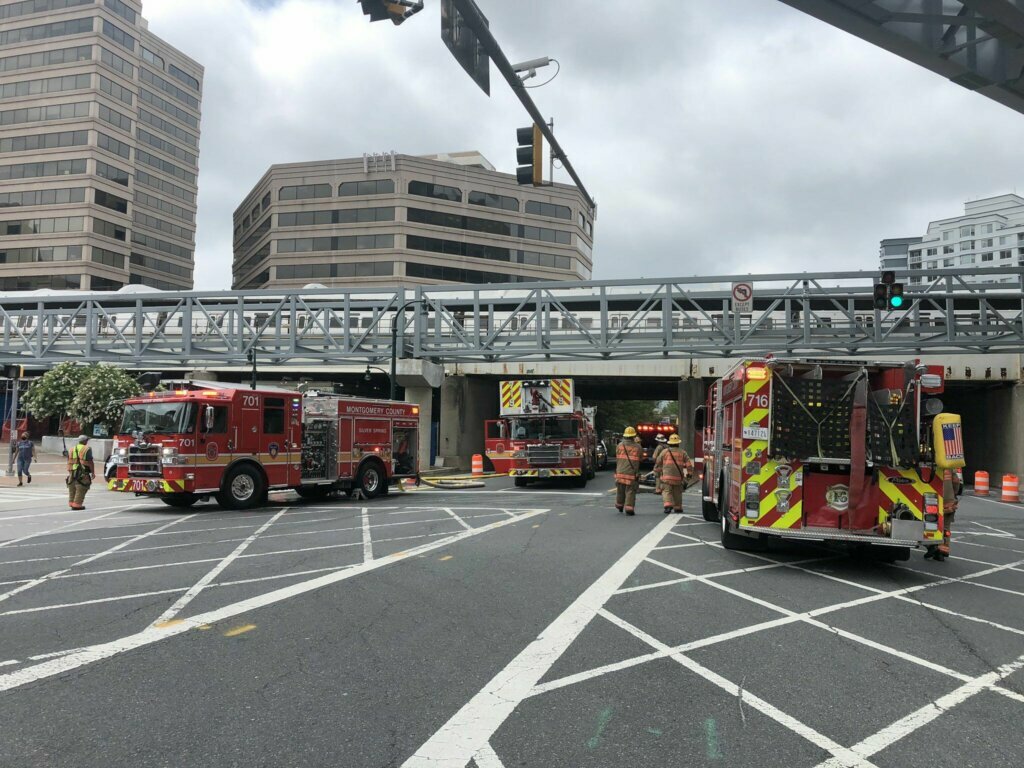
Some Metrorail workers are ignoring safety rules they don’t agree with.
That’s one of the findings from a Washington Metrorail Safety Commission safety audit discussed during a meeting Tuesday.
The safety audit report — which was based on interviews, documents and data reviews from late 2020 to early 2021 — states that Metrorail hasn’t adequately trained employees on automatic-train-control procedures, or ATC, which some workers resist anyway.
“There are safety employees who said that they were not interested in following safety rules that they thought had gone overboard,” commission spokesman Max Smith said. “This is obviously a safety concern for them, their colleagues [and] for riders.”
ATC has been suspended since 2009, and the audit also found failings in Metro efforts to get it going again — in conducting all of the inspection and maintenance that’s required in Metrorail manuals, according to Smith.
“Metro appreciates the work of the WMSC. We are committed to constantly improving safety for our customers and employees, and as noted, many actions are currently underway to improve emergency response protocols,” WMATA spokesman Ian Jannetta told WTOP in an email.
“We will continue to develop corrective action plans as quickly as possible, within 45 days.”
Also on Tuesday, the commission adopted final investigation reports into a derailment near the Silver Spring station back in July, as well as two train pull-aparts of 6000-series cars that happened on the Red Line in October and in November. (There also was a 6000-series train decoupling in 2018 before the commission assumed direct oversight responsibility of Metrorail.)
The direct causes of those pull-apart incidents were loose fasteners in parts of the coupler assembly that weren’t properly tightened.
“But the root cause behind why that happened was identified and included Metro’s lack of and incomplete inspection, maintenance and overhaul procedures; a failure to follow safety review and approval processes; and a failure to fully learn from prior events to implement system changes and reviews,” Smith said.
The safety audit’s 16 findings call out issues with …
SAFETY TRAINING — Metro hasn’t adequately trained its Automatic Train Control (ATC) employees on safety procedures and multiple employees say they don’t comply with safety procedures.
RETURN TO AUTOMATIC TRAIN OPERATIONS — Metro continues these efforts without following its safety certification process.
INSPECTIONS AND MAINTENANCE — Metrorail isn’t conducting all inspections and maintenance required by its ATC manuals.
TOOLS — Metrorail allows employees to use tools that haven’t gone through safety reviews or approval process.
MAINTENANCE PRIORITIES — Metrorail doesn’t have a standardized system for what preventive maintenance should be prioritized as critical to safety.
Another issue raised at Tuesday’s meeting relates to investigators being given full access to Metrorail’s closed-circuit-television system.
“WMATA recently made it more difficult for its internal safety investigators to access Closed Circuit Television recordings required for their work. This is slowing some investigative work and creating challenges for other investigations and reviews,” safety commission CEO David Myer said.
“The WMSC also requires direct access to those CCTV feeds, as specified in the WMSC Compact. The WMSC has attempted to work collaboratively with Metrorail to gain access to the CCTV system to monitor and improve safety — but we may need to take action to acquire this access,” Myer said.
According to Metrorail’s spokesman, Metro provides all materials requested by WMSC, including CCTV footage, in a timely manner.
“Appropriate access to raw video footage is maintained by leadership within SAFE [Metro’s safety department] for investigatory purposes. SAFE will continue to preserve footage relevant to investigations and coordinate with the WMSC on such preservation,” Jannetta said.








